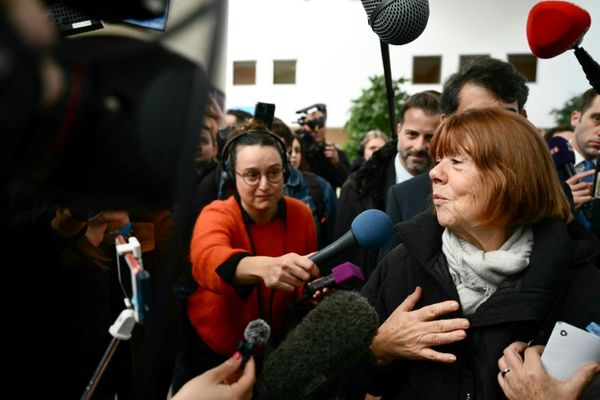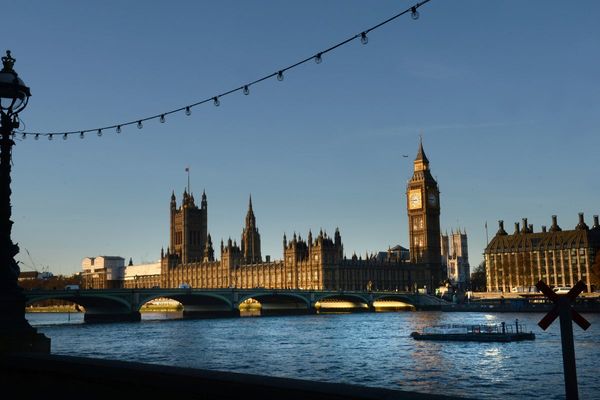Prime Minister Justin Trudeau says the first shipment of an oral COVID-19 pill is making its way across Canada but is no substitute for vaccination against the rapidly spreading virus.
The entire northern Quebec region of Nunavik is on "red alert" with more than half of its 14 Inuit communities struggling with high viral transmission.
Other provinces and territories are bracing for a peak in the pandemic's fifth wave with hospitalizations beginning to level out.
The antiviral drug Paxlovid is meant to protect against hospitalization and death. Canada has purchased one million courses for delivery this year.
"It's important to remember that this will be a powerful tool to continue to keep people from people getting extremely sick but it needs to be used right," Trudeau said Wednesday.
"It's not a replacement for getting vaccinated, for wearing masks, for staying safe, for keeping your distance."
The Omicron variant-fuelled fifth wave appears to be peaking in some provinces, while others warn the worst is yet to come.
Quebec reported its lowest daily increase in COVID-19 hospitalizations with a rise of eight, bringing the total to 3,425 people in hospital. It also saw a slight decline in intensive care patients.
In Nunavik, a curfew is in effect and all non-essential public places are closed with private indoor gatherings banned.
Meanwhile, Ontario Health Minister Christine Elliott said there are "glimmers of hope" that COVID-19 cases will peak this month with hospitalization and intensive care admissions to follow.
The province recorded a small dip in the number of people with COVID-19 in hospital to 4,132 patients from 4,183, as intensive care patients rose by eight to 589. Fifty-nine new deaths were also reported.
Many types of Ontario businesses continue to be closed under public health restrictions, but Premier Doug Ford said to expect a "positive" announcement on measures later this week.
In British Columbia, some businesses are eligible for a financial boost from the province as they are forced to stay closed for at least another month to curb COVID-19 spread.
Places such as event venues, bars and nightclubs that don't serve meals can now apply for grants of up to $20,000. Businesses that have been able to reopen can claim up to half that amount.
Manitoba's top doctor said Wednesday the Omicron wave could peak soon, as the province logged a slight increase in hospitalizations and intensive care cases.
"Looking at other jurisdictions ... it would be reasonable to expect that peak in the near future if we maintain the same trajectory," said Dr. Brent Roussin, adding "it's a little early to consider."
Meanwhile, Saskatchewan is bracing for a tide ofCOVID-19 hospitalizations and absences among workers until mid-February,while more than 1,600 volunteers have answered a call from New Brunswick for pandemic assistance.
A surge of hospitalizations and a shortage of health-care staff led the province to ask people to help with clinical or non-clinical work, such as vaccine administration.
Almost 350 workers were isolating Wednesday after testing positive for COVID-19. New Brunswick has a record 123 people in hospital with COVID-19.
Hospitalizations continue to climb in Saskatchewan, increasing by 95 per cent over the last month. The province's top doctor said hospitalizations will continue to increase over the next six weeks before peaking.
Prince Edward Island announced new restrictions this week to protect its health system. Nova Scotia, meanwhile, was the only Atlantic province to return to in-person learning at public schools this week.
Nova Scotia Premier Tim Houston said attendance had dropped by about eight per cent compared to normal ranges since schools reopened Monday.
"There are about eight per cent of families who kept their children home for one reason or another," Houston said. "The emotions of the situation are not lost on any of us … but I want to stress that our schools are safe."
Alberta is seeing hospitalization rates rising to levels not seen since September. As case rates continue to climb, one of its largest school boards is asking the government to open vaccine clinics in schools.
Edmonton Public Schools said more than 5,000 of its students were absent Tuesday due to COVID-19 — about five per cent of its total student population.
Twenty-two more people are in hospital for the virus, bringing Alberta's total to more than 1,100. The number of intensive care patients has grown by four.
This report by The Canadian Press was first published Jan. 19, 2022.
Alanna Smith, The Canadian Press







